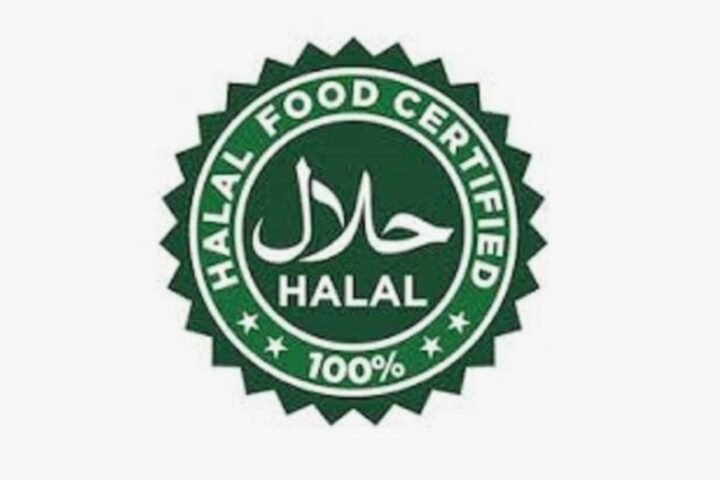In today’s global market, the demand for Halal-certified products is rapidly increasing. As consumers become more conscious about what they consume, businesses that cater to Muslim populations must understand how to get halal certification to maintain trust, ensure compliance, and expand market reach. Halal certification is not just a religious label; it signifies quality, cleanliness, and adherence to ethical practices, making it valuable for both Islamic and non-Islamic markets. The process of obtaining halal certification involves several steps, documentation, and inspections. It applies to industries such as food and beverages, cosmetics, pharmaceuticals, logistics, and even slaughterhouses. Whether you’re a local manufacturer or an exporter aiming to tap into Muslim-majority countries, understanding the steps involved is essential to make your product or service compliant with Islamic guidelines.
What Does Halal Certification Mean and Why Is It Important?
Before diving into how to get halal certification, it’s important to understand what halal actually means. Halal is an Arabic term that means “permissible” under Islamic law. Halal certification ensures that the product or service offered is permissible for Muslims to consume or use. This certification is granted by an authorized Halal body after verifying that the ingredients, sourcing, preparation, and handling methods comply with Islamic dietary laws. The importance of Halal certification extends beyond religious obligations. It adds credibility to your brand, enhances consumer confidence, and increases your potential to enter new markets. Additionally, halal-certified products are often perceived as clean, safe, and ethically sourced, which appeals to a broader range of health-conscious and ethical consumers.
Who Needs Halal Certification?
Halal certification is essential for businesses that produce, handle, or distribute food and non-food items that may contain animal derivatives or require specific handling. This includes food manufacturers, restaurants, catering services, slaughterhouses, pharmaceutical companies, cosmetic brands, packaging companies, and even logistics providers dealing with halal-certified products. If your business deals with consumables or products that may raise concerns among Muslim consumers, knowing how to get halal certification becomes a crucial factor in your operational strategy. The certification can also be necessary for businesses involved in export activities, especially to Muslim-majority countries where compliance with halal regulations is mandatory.
Steps on How to Get Halal Certification
Learning how to get halal certification involves understanding a structured process. It begins with identifying a recognized and credible halal certifying body in your region or the target market. Once chosen, you typically need to submit an application detailing your business operations, product categories, and ingredients used. The certifying authority will then review your documentation and conduct audits or inspections of your facility, manufacturing processes, hygiene standards, and supply chain. The key steps include application submission, documentation review, on-site audit, corrective action (if needed), final approval, and certification issuance. Each halal certification body may have specific guidelines and forms, but the overall process generally follows this format. After receiving certification, businesses must continue to adhere to halal practices, as surprise audits and annual renewals are part of maintaining the certification.
Documentation and Requirements for Halal Certification
As you explore how to get halal certification, it’s essential to understand the documents and requirements involved. These typically include ingredient lists, supplier details, production processes, hygiene protocols, staff training records, and any relevant government licenses or permits. You must provide detailed information about your raw materials and ensure none of them contain non-halal or haram ingredients such as pork, alcohol, or improperly slaughtered animal products. Documentation related to the segregation of halal and non-halal items in storage and during production is also essential. In addition to physical documents, some halal certification bodies require businesses to undergo training for their employees to ensure they understand halal procedures and compliance.
Common Challenges in Getting Halal Certification
Many businesses face challenges when figuring out how to get halal certification, especially if they are new to halal compliance. One of the common challenges is identifying hidden haram ingredients in raw materials or flavors. For instance, certain emulsifiers or additives may be derived from non-halal sources without clear labeling. Supply chain transparency is another hurdle, as businesses must ensure their vendors and suppliers are also halal-compliant. Language barriers, especially when dealing with international halal bodies, and varying halal standards in different countries can also create confusion. However, working closely with a reputable halal certification body and being proactive in compliance can overcome these issues effectively.
Benefits of Halal Certification for Businesses
The benefits of learning how to get halal certification go far beyond religious compliance. It enhances your brand image, builds customer trust, and opens doors to international trade. Many Muslim-majority countries require halal certification for imported goods, so having the certification significantly increases your chances of exporting. Halal certification also contributes to better food safety, hygiene, and ethical sourcing practices. Additionally, halal-certified products are increasingly favored by health-conscious non-Muslim consumers who associate the label with quality and ethical standards. For food service providers, it can increase foot traffic from Muslim customers who specifically look for halal dining options. In a competitive market, halal certification gives you a unique selling proposition that sets you apart from non-certified competitors.
Choosing the Right Halal Certification Body
A critical decision in understanding how to get halal certification is selecting the right halal certifying authority. Different countries have different recognized halal bodies, and not all of them are accepted globally. It’s essential to choose a certification authority that is recognized by international halal organizations such as JAKIM (Malaysia), MUIS (Singapore), ESMA (UAE), or GAC (Gulf countries) depending on where you plan to sell. The certifying body should be transparent, experienced, and provide adequate guidance throughout the process. You should also verify if their certification is valid for export to your target markets, especially if you aim to distribute your products globally. Always ensure that the halal body complies with recognized halal standards such as OIC/SMIIC or GSO standards.
Conclusion
Understanding how to get halal certification is essential for businesses that aim to cater to Muslim consumers or enter halal-sensitive markets. The process involves compliance, transparency, and ongoing commitment to Islamic guidelines. By securing halal certification, companies not only gain access to a multi-billion dollar halal market but also align their practices with ethical and high-quality standards that appeal to a broad customer base. For reliable certification services, businesses can consult halal bureau, a trusted name in halal compliance and certification support.










